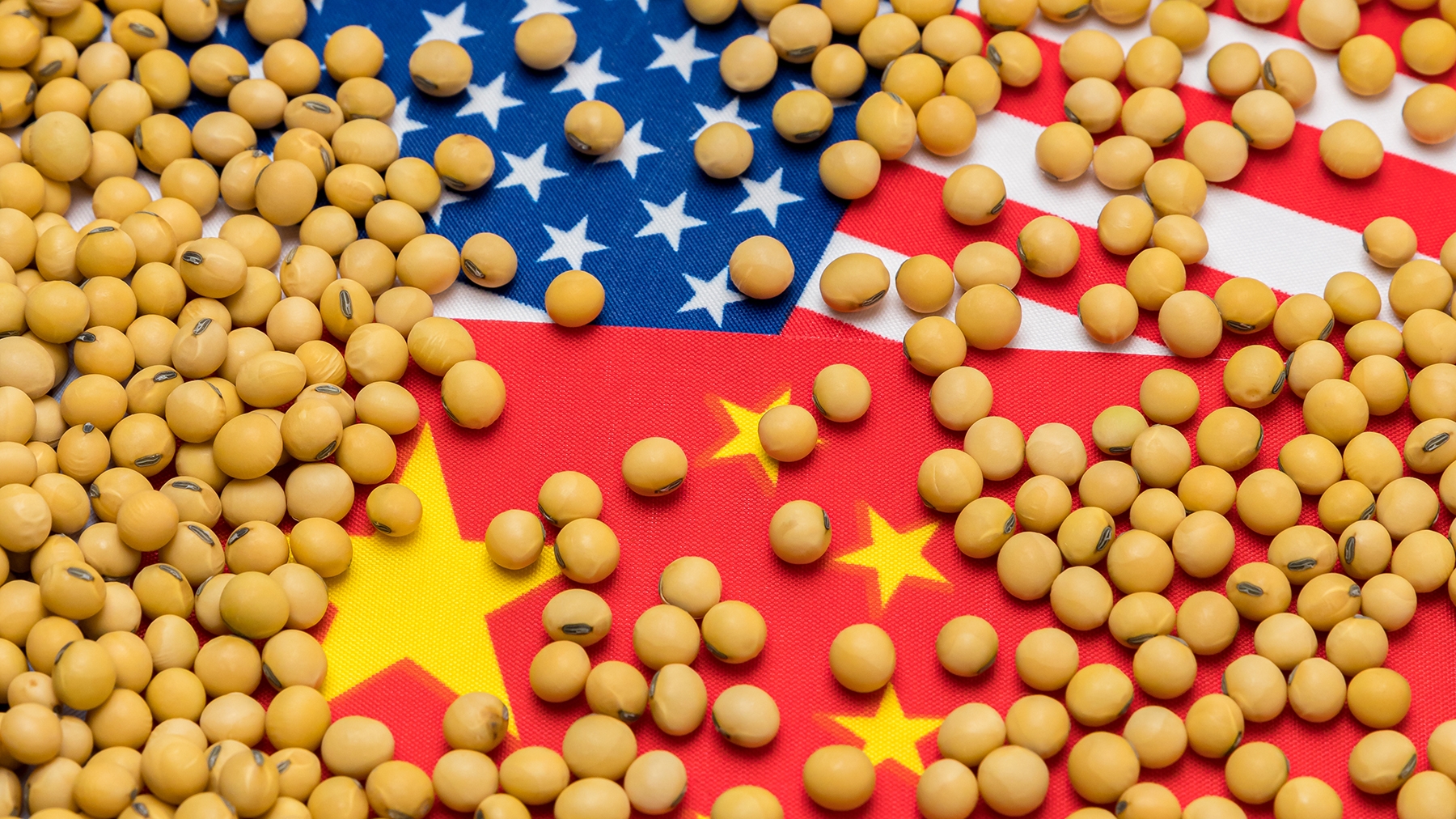US soybean body urges pact with China as farmers fear prolonged trade dispute

The American Soybean Association (ASA) on Tuesday (local time) urged the US government to secure a deal with China that reopens this vital market for US soybeans, stressing that American soybean farmers cannot survive a prolonged trade dispute with their largest customer.
“US soybean farmers are standing at a trade and financial precipice,” ASA President Caleb Ragland, a soybean farmer from the US state of Kentucky, said in a letter to the White House, according to the association’s official website.
“Soybean farmers are under extreme financial stress. Prices continue to drop and at the same time our farmers are paying significantly more for inputs and equipment. US soybean farmers cannot survive a prolonged trade dispute with our largest customer,” Ragland said.
China has historically imported more than 60 percent of the world’s soybean supplies, with the US once serving as its top source. But retaliatory tariffs now make US soybeans 20 percent more expensive than South American supplies, and China has turned to Brazil, which has expanded production to meet demand, according to the association.
“China has not purchased any US soybeans for the months ahead as we quickly approach harvest. The further into the autumn we get without reaching an agreement with China on soybeans, the worse the impacts will be on US soybean farmers,” Ragland said.
The ASA also released a white paper outlining the financial consequences of losing long-term market share in China. According to the white paper, China has been the top buyer of US soybeans by a staggering margin. In marketing year 2023/24, the US shipped nearly 25 million metric tons of soybeans to China while a mere 4.9 million metric tons were exported to the EU. The EU, the second-largest buyer of US soybeans, can barely buy the equivalent of one-fifth of China’s purchases, according to the white paper.
“Every day without an agreement further erodes US farmers’ market share in China,” Ragland said. “We strongly urge the administration to secure a deal that reopens this vital market for US soybeans.”
“The tariff measures launched by the US administration have not only targeted other countries but also inflicted damage on US industries themselves. This damage has already materialized, and the US domestic soybean industry has felt the pain of the trade war,” Bao Jianyun, dean and professor of the Department of International Politics at the School of International Studies at Renmin University of China, told the Global Times on Wednesday.
The US administration should listen more to the voices of its domestic industries, such as soybean producers, because these reflect broader public opinion in the country, Bao said, noting that a mutually beneficial trade relationship also serves the interests of businesses on both sides.
Imported soybeans provide important support for ensuring China’s supply of edible vegetable oils and products such as animal feed. Brazil, the US, Argentina, Canada, and other countries are the main sources of China’s soybean imports, according to a report published on the official website of China’s Ministry of Agriculture and Rural Affairs.
From a business perspective, many Chinese companies have turned to lower-risk sources, such as Brazil and other parts of South America, in order to reduce uncertainty, Bao said, which indicates that the trade conflict has already had far-reaching effects.
In July, China imported about 10.4 billion kilograms of soybeans from Brazil, a year-on-year increase of 14 percent, according to data from China’s General Administration of Customs.
In the same month, China imported 421 million kilograms of soybeans from the US, down about 11.5 percent, customs data shows.
Soybeans are just one sector. Other fields in the US, such as energy and industries that rely primarily on China as a market, have also been affected by the trade tensions, and the concerns of businesses and the public will gradually become evident, according to media reports.
Bao said that the mounting evidence fully reflect the damage of US tariffs and underscored the need for Washington to lower duties.
Asked to comment on US Treasury Secretary Scott Bessent’s suggestion in media interviews that the US is satisfied with the current tariffs set up with China, Mao Ning, a spokesperson for the Chinese Foreign Ministry, said on Wednesday that “we hope the US will work with China, act according to the important common understandings reached by the two presidents during their phone call, make good use of the economic and trade consultation mechanism, and strive for positive outcomes on the basis of equality, respect and mutual benefit.”
For almost 30 years of expertise in the agri markets, UkrAgroConsult has accumulated an extensive database, which became the basis of the platform AgriSupp.
It is a multi-functional online platform with market intelligence for grains and oilseeds that enables to get access to daily operational information on the Black Sea & Danube markets, analytical reports, historical data.
You are welcome to get a 7-day free demo access!!!
Read also
Abbey Commodities – General Partner of BLACK SEA GRAIN.KYIV-2026
Export Logistics Reset 2026: Rail Tariffs, Capacity Pressure and New Trade Reality
Kazakhstan expands direct purchase program to sunseed and linseed
Australia exports over 1.2 mln tons of barley in December
Vegetable oil quotes are stable, but pressure on sunflower oil prices is increasing
Write to us
Our manager will contact you soon



